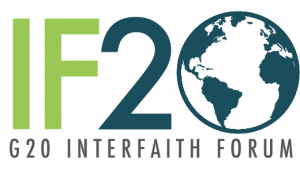
Environment, Sustainability, and Religion: Exploring their Intersection

G20 Social
The discussions during the Manaus workshops touched on real life, immediate challenges and, to a lesser extent, heartening opportunities.
MANAUS, AMAZONAS, BRAZIL, June 22, 2024 /EINPresswire.com/ -- Many discussions about environmental challenges overlook the important and complex intersections between environment, sustainability, and religion. A comment by Adalberta Felicio Maluf Filho, National Secretary for Urban Environment and Environmental Quality for Brazil, underscored this point. He had never, he said, been asked as a minister or before to talk about the contributions of the religious sector to the environmental agenda. But at an IF20 workshop in Manaus, Brazil, he was asked to do just that. The G20 Interfaith Forum (IF20), the Brazilian Center for Studies in Law and Religion, and the Federal University of Uberlandia with the support of Brazil G20 Social organized a series of workshops on this topic during the week of August 17-21 in Manaus, Brazil.
The workshops tackled the following topics:
(1) Creating value and prosperity by focusing on the need for food security and climate justice
(2) Preserving the living forest through agroforestry
(3) Using indigenous knowledge and its focus on the rights of nature in responding to climate change
(4) Protecting the Amazon region by addressing the complex challenges of social, cultural, economic, and environmental problems that plague this region
Speakers included Andre Viana, technical director at IDESAM; Vanda Witoto, Indigenous leader in Manaus; Tacius Fernandes da Silva, Head of the Social Participation and Diversity Advisory Department; Elianildo Nascimento, URI; Maria do Perpetuo Socorro Rodrigues Chaves, Professor at the Federal University of Amazonas; and Dom Joaquim Hadson de Souza Ribeiro, Auxiliary Bishop of the Archdiocese of Manaus.
Understanding the Problem and Seeking Solutions
In one workshop, Katherine Marshall, vice president of IF20, and David Saperstein, former USA Ambassador-at-large for Freedom of Religion, discussed practical solutions that must start with a clearer understanding of the problem. Too many assume falsely, Katherine said, that religious communities have little to add to policy discussions about sustainable development. Another false assumption separates religion from political power. Every one of the 17 Sustainable Development Goas has a religious dimension. David Saperstein offered a plan of action which included inviting religious congregations to act in practical ways to save the environment. He went on to describe real-world examples of congregations that have made a difference on environmental issues.
Victoria and Japes Noguiera Sousa discussed how their religious beliefs and the spiritual examples of their parents shaped their agroforestry experiences. The environmental advantage of agroforestry helps to reclaim areas that have been harmed ecologically. They teach their farming techniques - centered on regenerating nature - to people around the world, such as in Africa and India. Ernesto Souza, an agroforestry farmer who lives at the Uatuma legal reserve in the Amazon, spoke about his business growing food in the Amazon and his marketing techniques for selling his organic products.
The global interfaith alliance, United Religions Initiative, assembled a team of scholars and religious leaders to speak to the challenges facing the Region. Looking towards paths towards solutions, World Vision and the Interfaith Rainforest Initiative highlighted positive action that brings religious actors together with civil society groups seeking to protect the environment and arrest the degration that is far to visible to those who live here.
Indigenous community members and leaders who attended the workshops added an important voice to these discussions. Vanda Witoto gave an impassioned plea about the plight of her people and the lack of sanitation, drinkable water, and educational opportunities. Another theme was the knowledge Indigenous people have about caring for the environment. Society should capitalize on their wisdom rather than treating them as outcasts.
The discussions during the Manaus workshops touched on real life, immediate challenges and, to a lesser extent, heartening opportunities. We heard about beekeeping, the pollution of rivers and waterways, discrimination against Indigenous children in schools, contested land rights, the frustrations of youth unemployment, and entrepreneurs who see opportunities all around them in the Amazon forests. But these very local problems and specifically the challenges of protecting the Amazon environment, are also at the heart of global agendas and thus of immediate and central concern and interest to G20 leaders. This offers an important lesson: global problems have practical and very local faces which we and religious communities can and should see and voice. And it presents a challenge: how can we better link these local realities with what can seem distant and even abstract in the ways global agendas are described?
Future IF20 Meetings in Brazil
IF20 will have their annual forum in Brasilia from August 17-August 21. The focus of these meetings will align with the thematic priorities of Brazil during its G20 Presidency 2024, and the ongoing priorities of IF20 and PaRD, the partner organization for the Forum. The priority themes are the following:
A) The fight against hunger, poverty, and inequality which includes food security, health equity, child welfare, and gender equality
B) Three dimensions of sustainable development (economic, social, and environmental) which includes societal resilience, the Amazon region, climate finance and ethics, and Artificial Intelligence (AI)
C) Reform of the global governance system which includes advancing global agendas, stopping human trafficking, supporting the G20 focus on reforms of multilateral banks, and anti-corruption
In each of these areas, the focus will be to discuss the link between these issues and religion – how can religious actors help in these areas and what solutions can religious actors suggest. Through keynote addresses on each key topic, plenary panels, small-group discussions, and interactive workshops, the Forum will provide a dynamic platform for sharing ideas, experiences and good practices, while fostering innovative strategies to address current complex global challenges in the context of the religious sector, and the development of actionable recommendations.
Marianna Richardson
G20 Interfaith Forum
email us here
Distribution channels: Agriculture, Farming & Forestry Industry, Human Rights, Politics, Religion, World & Regional
Legal Disclaimer:
EIN Presswire provides this news content "as is" without warranty of any kind. We do not accept any responsibility or liability for the accuracy, content, images, videos, licenses, completeness, legality, or reliability of the information contained in this article. If you have any complaints or copyright issues related to this article, kindly contact the author above.
Submit your press release
